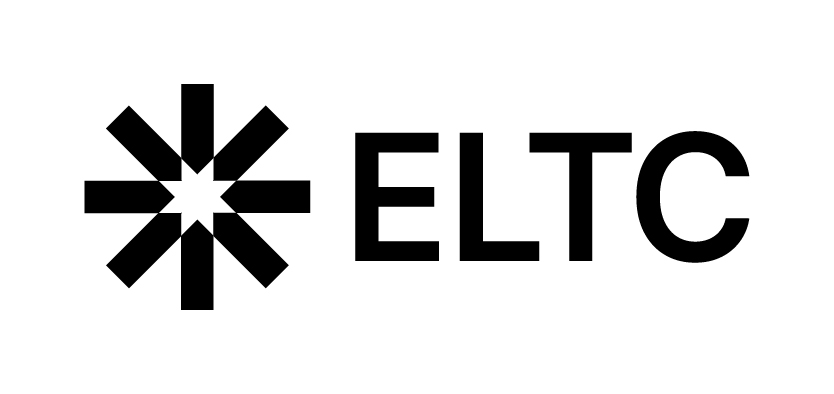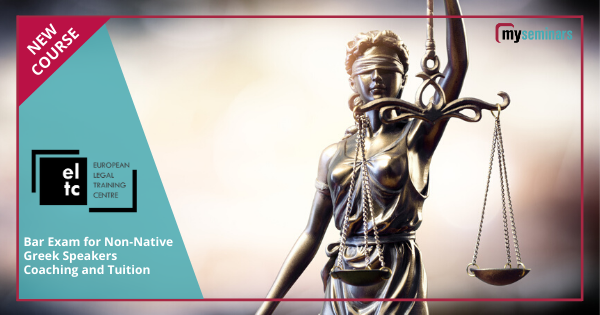
Bar Exam for Non-Native Greek Speakers | Coaching and Tuition
- Νομοθεσία, Νομική & Δικηγόροι
ΠΕΡΙΓΡΑΦΗ
This Course has been specially designed by Cyprus Advocates, with extensive educational and legal practice experience
The Cyprus Legislation regarding becoming an advocate in Cyprus:
a.Practising as an advocate in Cyprus, as defined in the Advocates Law, Cap 2, means:
- Appearing before any Court to conduct any proceedings on behalf of any person;
- Preparing or perusing of any document intended to be used in connection with any proceedings before any Court (pleadings);
- Registering of Trade Marks and Patents and appearing before any authority for this purpose;
- Drawing, reviewing and amending any Memorandum or Articles of Association of a company of any form and any document in connection with the incorporation, registration, reorganization or dissolution of any company;
- Registering ships and preparing of any document in relation to any right on a ship;
- Giving legal opinions for reward;
- Preparing and perusal of any document to be filed in Court in relation to the administration of the estate of a deceased
b. Application Procedure:
- The letter/approval for the issue of the annual licence must submitted directly to the Supreme Court.
- The letter/approval is accompanied by a payment of a fee of €51,26.
- Following the enrolment in the Registry of Advocates kept by the Chief Registrar, the Chief Registrar issue a certificate of enrolment under the seal of the Supreme Court.
- The Cyprus Bar Association keeps the book called “Register of Practising Advocates” and issues the annual license of Practising.
c. Eligibility Criteria:
Every person is entitled to be enrolled as an advocate if he satisfies the following criteria:
- A citizen of the Republic of Cyprus and have your usual residence in the Republic, AND
- Has completed his/her 21st year of age, AND
- Is a holder of a Law degree recognized by the Legal Council
Firstly, you should enroll as a Trainee Advocate in Cyprus. Following the completion of the required 12 months of legal practice either in a law firm in Cyprus or at the Attorney General’s Law office, and provided that you have successfully passed the examination of the Legal Council for the Trainee Advocates, you will be entitle to be enrolled as an advocate, and therefore, to practice in Cyprus.
d. Application procedure to become a Trainee lawyer:
- To register as a trainee lawyer, applicants must fill out an application form which must be submitted to the Legal Council. The form must be submitted alongside a letter from a law firm where you will be completing your traineeship.
- You are able to complete your traineeship in a law firm or at the Attorney General’s office of the Republic of Cyprus.
You can find the necessary application forms at the following website:
https://www.legalcouncil.org.cy/egrafi-sto-mitroo-dikigoron
ΣΚΟΠΟΣ ΣΕΜΙΝΑΡΙΟΥ
Aims of course
- To teach students Professional Greek to give them a firm grasp of the Greek language before progressing on to Greek Legal terminology;
- To enable students to learn the important Greek Legal Terminology in all subject modules;
- To enable students to understand each topic and to give students a short introduction to the topics of each module;
- To enable students to understand the substantive law for each of the 10 modules;
- To enable students to answer past Bar exam questions provided by the Cyprus legal council;
- To enable students ultimately to sit the Cyprus Bar exams in Greek.
Course Objectives
- To learn Greek Legal terminology and attain a working proficiency of the Greek Language.
- To enable students to learn about the Cypriot Legal environment and be able to answer questions regarding the system and law in the Greek Language.
- To demonstrate an understanding of the law underpinning the modules students must pass for the Cyprus Bar exams.
- To apply the law to problem scenarios.
- To describe the law in essay format.
ΣΕ ΠΟΙΟΥΣ ΑΠΕΥΘΥΝΕΤΑΙ
The course is targeted towards people with a qualifying law degree who do not have a firm grasp of the Greek language but want to qualify as an advocate in Cyprus – with just the language restrictions holding them back. The course covers all the material required to pass the Cyprus Bar exams in the Greek language. Alongside this, students are taught professional Greek, Greek legal terminology and are introduced step by step to each module through its terminology. The course aims to give non-native speakers of Greek the confidence and skills to pass the Cyprus bar exams in Greek.
The course is aimed towards a person who is willing to work hard and achieve their goal of becoming a registered advocate in Cyprus – despite the language barrier.
ΠΕΡΙΣΣΟΤΕΡΕΣ ΠΛΗΡΟΦΟΡΙΕΣ
Course methodology:
a) Face to Face Learning:
Face-to-face learning is an instructional method where course content and learning materials are taught in person to a group of students. This allows for live interaction between a learner and an instructor. It is the most traditional type of learning instruction. Learners benefit from a greater level of interaction with their fellow students as well. In face-to-face learning, students are held accountable for their progress at the class’s specific meeting date and time. Face-to-face learning ensures a better understanding and recollection of lesson content and gives class members a chance to bond with one another.
Face-to-face learning is essentially a teacher-centered method of education, and tends to vary widely among cultures. Many modern education systems have largely shifted away from traditional face-to-face forms of educational instruction, in favor of individual students’ needs.
The tutor will use handouts and PowerPoint presentations during the face to face lessons. There will be an opportunity for students to ask questions. The trainer/coach will use various instructional methods and plan and encourage in class discussion. Students will benefit from a highly structured format which will allow student questions.
All course materials will be available and accessible through an online drive up until the June 2021 examination session so that students are able to refer back to the materials used in class for self- study, revision and reflection.
Students will be provided with revision notes, revision cards, skeleton answers and advice on how to study the materials given.
Class size shall be limited to a minimum of 4 students and a maximum of 10 students per classroom.
b. Online Learning
The course is scheduled and led by an instructor and/ or facilitator through an online learning platform. It follows the same structure and content as face to face learning albeit in a virtual classroom through videoconferencing and screen sharing. It will consist of lectures, powerpoint presentations, assignments and collaborative activities among learners.
The trainer/coach will use various instructional methods and plan and encourage in class discussion. Students will benefit from a highly structured format which will allow student questions.
All course materials will be available and accessible through an online drive up until the June 2021 examination session so that students are able to refer back to the materials used in class for self- study, revision and reflection.
Students will be provided with revision notes, revision cards and advice on how to study the materials given. Class size shall be limited to a maximum of 10 students per virtual classroom.
See also Other Available Options for Bar Exams Preparation Courses
Αναλυτικό Κόστος Σεμιναρίου
- € 3200.00
- € 0.00
- € 608.00
- € 3200.00
- € 3,808.00
ΠΡΟΓΡΑΜΜΑ ΣΕΜΙΝΑΡΙΟΥ
Δευτέρα - 12 Οκτ 2020
Ώρα
18:30 - 20:00
Τοποθεσία:
T.I.M.E. Private Institute Ltd
Τρίτη - 27 Απρ 2021
Ώρα
18:00 - 20:00
Τοποθεσία:
T.I.M.E. Private Institute Ltd
 Ελληνικά
Ελληνικά  English
English



 Αγγλικά
Αγγλικά
 634 ώρες
(
300 μέρες
)
634 ώρες
(
300 μέρες
)






